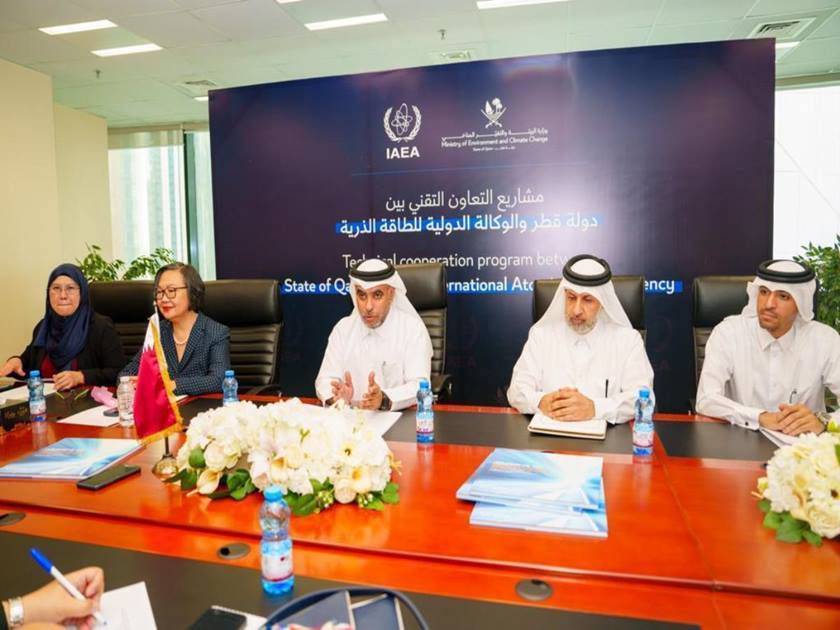Doha, Qatar – The International Atomic Energy Agency (IAEA) has given the green light to three new national projects in Qatar, slated to commence in January and span over three years.
These projects, approved by the IAEA, encompass critical areas including the management of Naturally Occurring Radioactive Material (NORM) wastes and residues arising from oil and gas extraction. Additionally, two projects under medical technical cooperation aim to bolster cancer diagnosis in children and combat specific animal diseases.
Abdulhadi Nasser Al Marri, Assistant Undersecretary for Environmental Affairs at the Ministry of Environment and Climate Change (MECC) and Qatar’s National Liaison Officer for Technical Cooperation Programmes at IAEA, highlighted the significance of these initiatives. He emphasized the need to update regulations governing NORM from the oil industry to ensure employee safety and environmental protection aligning with global safety standards.
Al Marri underlined the productive collaboration between Qatar and IAEA, outlining seven ongoing national projects spanning agriculture, food safety, treatment, and diagnosis utilizing radiological techniques, as well as measures in radiation protection and safety.
These initiatives cover a spectrum of areas including enhancing agricultural practices, fortifying food safety measures using nuclear techniques, advancing diagnostic radiology, and establishing a secondary laboratory for radiation measuring device calibration.
Moreover, discussions between Qatar and IAEA officials shed light on various IAEA initiatives that Qatar could benefit from, including initiatives focused on radiation medicine for cancer treatment, controlling plastic pollution through nuclear technology, and combating zoonotic diseases.
The projects undertaken by Qatar under the IAEA framework aim to harness nuclear energy for peaceful and scientific sectors, spanning environmental, health, agricultural, and educational domains. Al Marri emphasized the alignment of these efforts with Qatar’s developmental goals outlined in the Qatar National Vision 2030 and the signed framework program with IAEA.
Jane Abaya, Director of the Division for Asia and the Pacific in the Department of Technical Cooperation at IAEA, commended Qatar’s advanced laboratory capabilities, marking them as centers for training on nuclear medicine devices, radiation therapy, and food safety measures for AIEA member states.
Abaya highlighted Qatar’s commitment to radiation safety across medical, industrial, and research domains, ensuring compliance with regulations for radiation activities and practices.
The collaboration between Qatar and IAEA extends beyond laboratory advancements to education, with discussions underway regarding assistance in nuclear science for high school and university students, as well as Qatar’s participation in the Nuclear Science Olympiad for U-20 students.
The partnership also aims to address pressing global challenges such as plastic pollution in seas through advanced technologies and awareness initiatives.
The IAEA continues to engage with Qatar, emphasizing the importance of public awareness about the peaceful use of nuclear energy and the necessity to prepare for and manage nuclear and radiation-related accidents.








